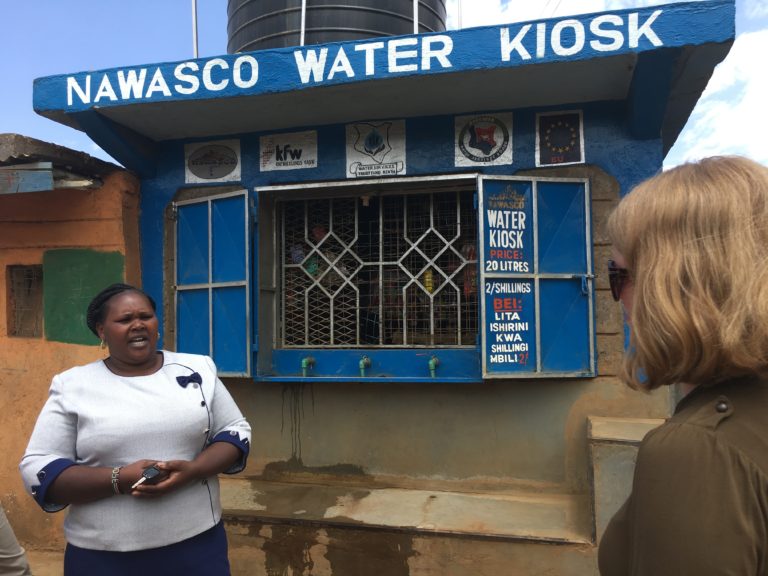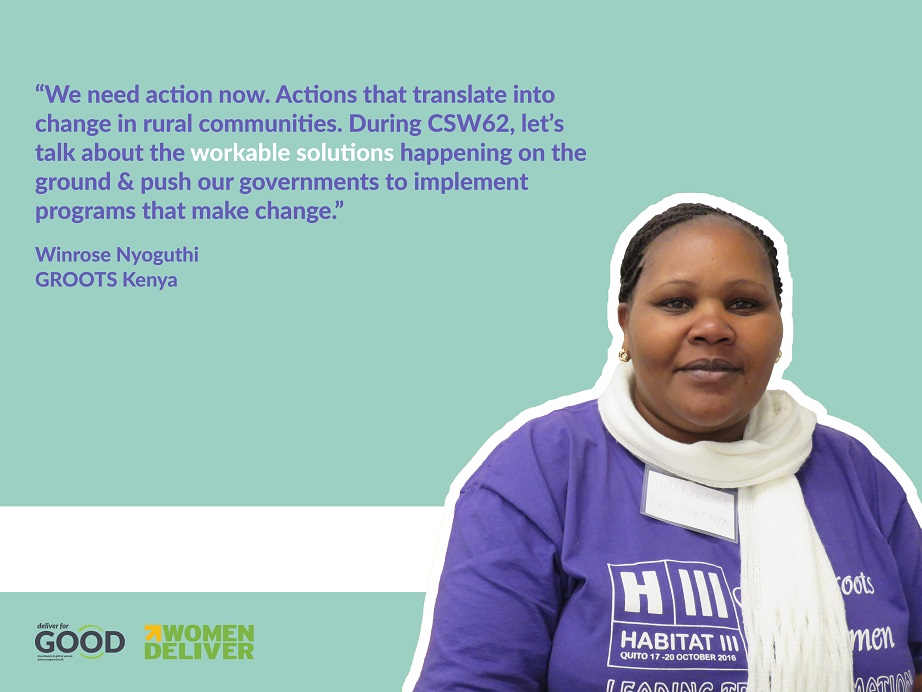
My name is Winrose Mwangi, a grassroots woman member of GROOTS Kenya. I lead a network of over 233 women–led groups in my county (sub-national) and coordinate 3,500 groups in total national wide.
Our role is the enhance grassroots women’s effective participation in development. A key strategy in our work is advocacy.
Ten years ago, we realized that it’s quite difficult to influence policy, public perceptions and decisions without enough, simple and well understood evidence. As grassroots champions we resolved to strengthen our advocacy with greater links to data. Unfortunately, much of the data needed is not available. Sometimes the data may be available but not accessible - coming in a form that grassroots women – our core constituency – is unable to interpret either due to literacy levels or in the way the data is presented.
Beyond that, a lot of the available data focuses on national and/or global averages. While important to access these figures, it poses a challenge as our work takes place at the local/village level and then cascades upward.
Faced with this challenge and yet committed to strengthening our evidence based advocacy work, we – the GROOTS women – decided to begin generating our localized data based on the specific needs of a specific project. This data is powerful – it is real time and highly contextualized. It is this kind of evidence that has equipped us with content for public participation. We are able to share our views in government planning meetings and support our arguments with our strong data.
And while not always easy, we have found the process of collecting data very empowering. It provokes a desire to drive change among the data collectors (grassroots women). Data generation also increases the profile and visibility of grassroots women as they interact with respondents
who sometimes represent governments, private companies, policy makers or other individuals they would not normally have the means to interact with.
By giving grassroots women a voice and a platform, it is also a game changer in helping to alter power relations, increase confidence, self-esteem and leadership capacities.
Here is one real life example:
 In 2014 through our gender tracking tool we collected and analyzed data on the number of women in public institutions managerial bodies. In my county, Laikipia, women accounted for only 2% of the total board members in water management institutions. Equipped with data, we – the grassroots champions – were able to influence water policies and mobilize women to take up
In 2014 through our gender tracking tool we collected and analyzed data on the number of women in public institutions managerial bodies. In my county, Laikipia, women accounted for only 2% of the total board members in water management institutions. Equipped with data, we – the grassroots champions – were able to influence water policies and mobilize women to take up
leadership role in all water management bodies. Today we have 48% of women elected and appointed in water projects and boards. I was personally appointed to sit in the board of Nanyuki Water and Sewerage Company and have actively engaged with a focus on the role of evidence.
To aid my role, we collected and analyzed data on the number of women households connected with water and the distance women travel to fetch water. We found that many women households were not connected due to high connection fees. I have used this data – both qualitative and quantitative – to convince the company to connect 22 additional women headed household with water. I then worked to support women owned water kiosks as an income generating activity which would empower while also helping others gain access to clean
water at an affordable fee and within close distance to their homes.
Two years later in 2016, I led my grassroots team to map the impact of climate change across different sectors of our county economy. Using this evidence we gathered, we have been able
to lobby the County Water Government Water Sector Plan 2018-2022 to include actions that will support Laikipia County to adapt and mitigate against the impact of climate change.
Both of these examples show how we have used data to make real change for women in our community. And at each phase we improve our data generation strategy. This year through the support of Equal Measures2030 we have reorganized our gender tracking tool, aligned it to the SDGs framework, and digitalized it. And we have trained 45 grassroots advocates/data assistants on how to apply the tool to track specific SDGs aimed at enhancing gender equality.
With this training, we will see more grassroots women advocating for change in our counties. And despite the challenges we face – time consuming, lack of compensation, political dynamics – we believe this work is a key and effective tool for self-empowerment and collective action.


